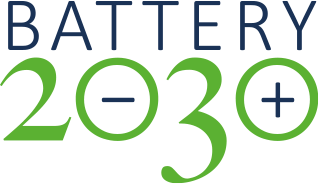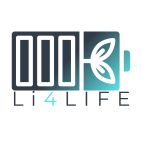Li4LIFE aims to create an efficient technology for the extraction of lithium from poor or complex ores of underutilised deposits, as well as post-mining tailings, as the basis for the development of future clean energy.
To cover the needs of the EU Battery Industry, Li4LIFE aims to contribute to the ambitious objective to increase the EU domestic supply of local raw materials by at least 5% to upcoming 2030.
Li4Life directly supports the objectives of the EU Critical Raw Materials Act, that aims to address the issue of access to CRM, reducing risks on supply and ultimately to guarantee that the Union has access to a safe and sustainable supply of CRMs, including Li, that are essential to the transition to clean energy.
Li4Life supports the CRM strategic aim, by developing technologies that enable to access Li from existing domestic (EU) ores and other mining deposits, including tailings. By focusing on internal resources and enabling the scaling up of effective technologies, the project aims to reduce the pressure on the supply from outside the EU. Li4Life will focus on underutilised deposits containing poor and complex ores from Li resources (petalite, lepidolite and zinnwaldite) from different sites across Europe.
Li4life will develop a sustainable and chain for producing Li battery-grade concentrates thanks to several applications with innovative downstream processes to produce Li battery-grade concentrates.
In particular, Li4Life will test and develop new applications and technologies for innovative downstream processes and for the extraction of lithium from poor/complex ores of underutilised deposits and post-mining tailings. These raw materials will provide the basis for the development of future clean energy products.
The project aims to incorporate a collection of novel technologies to obtain the final Li product. These technologies will start at TRL3 with the aim to reach TRL5. Techno-economic and life cycle assessments will be carried out to confirm the costs of production of Li carbonate at battery grade. One of the key features of the project is defining the bulk use for remaining waste, such as building materials, with a clear ambition of minimising waste generation and – and reducing overall environmental impact.
The strategic implementation of the project will include the commitment to obtain a social license for its operations and business models and ensuring compliance with EU ecological framework, which are strong drivers and key to success in the sector for the medium and long term.
Li4LIFE consortium brings together leading SMEs, universities, and R&D centres that will jointly review and analyse best practices in the sector. The technical and economic evaluation will enable to select the most promising one for implementation and development to serve as a smooth bridge from pilot scaling to actual industrial applications.
The project aims to showcase Li4life’s benefits, including economic, social, and environmental advantages, and promote replication across the EU for actual exploitation.
Launched in March 2024, Li4LIFE is a 36-month European project coordinated by ICAMCyL Foundation (Spain). Li4LIFE brings together an EU-wide interdisciplinary and complementary team. It includes 14 partners from 8 EU countries, 4 affiliated entities from Spain, and one associated partner from the UK.

Project Coordinator Myriam Montes, Fundación ICAMCYL (International Center for Advanced Materials and raw materials of Castilla y León), Spain
Contact m.montes@icamcyl.com

